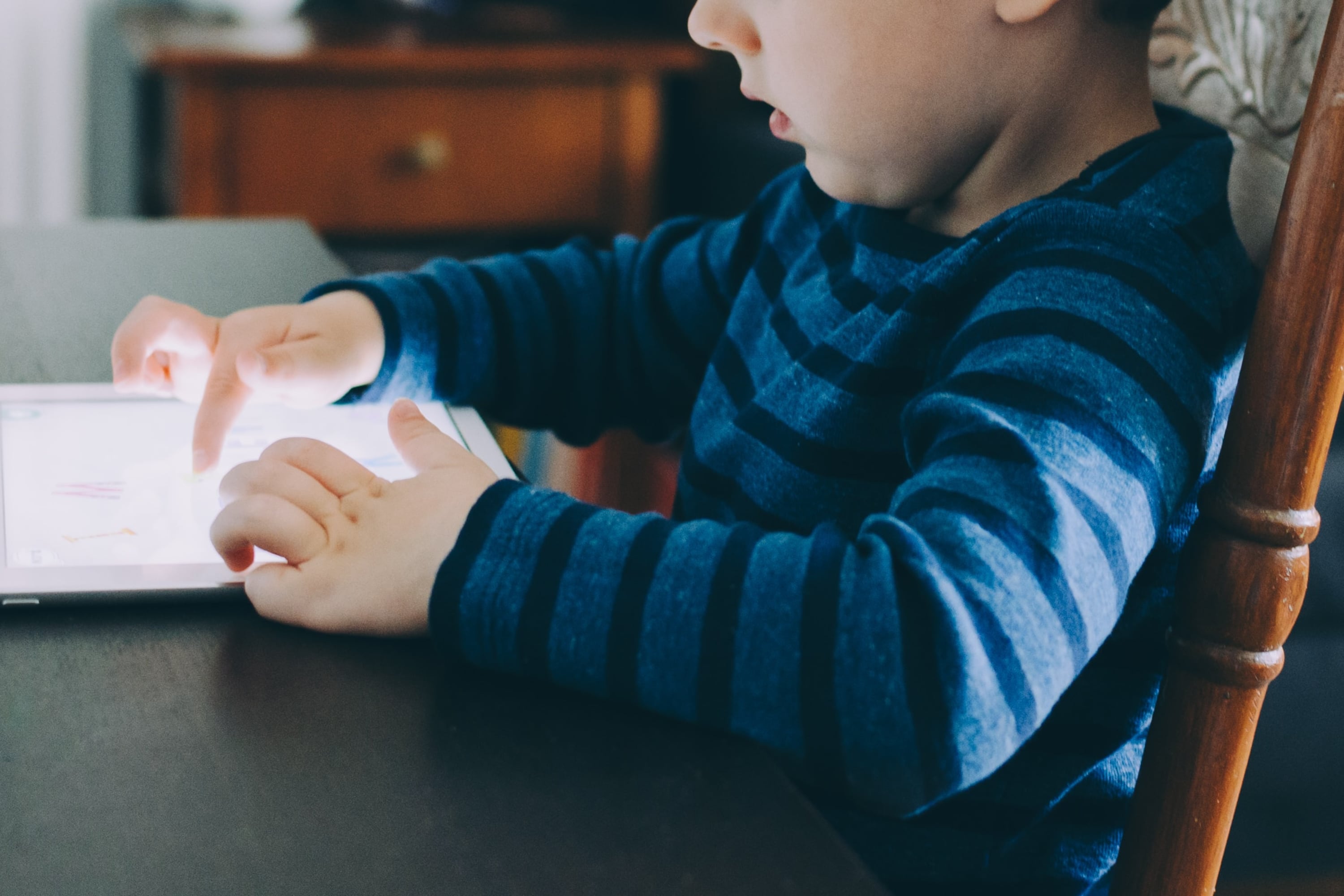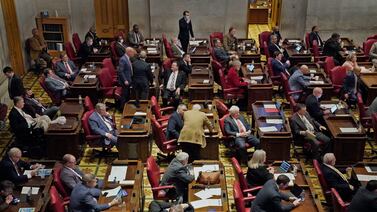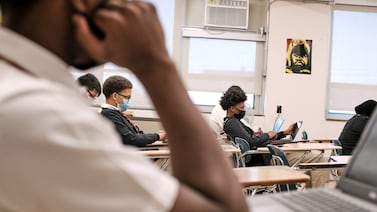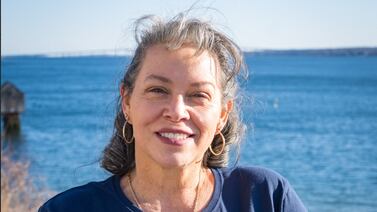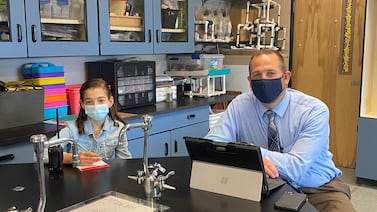Twice in his young life, Finn Jillson has been hospitalized with the seasonal flu. Finn has asthma. A few years ago, he ended up in an ambulance on his way to the closest children’s hospital within three hours of coming down with a flu cough, his mother said.
Finn’s asthma also puts him at increased risk from COVID-19. That makes the decision his family faces right now all the more difficult: Do they send Finn to preschool at Edison Elementary in Denver on Monday? Or do they give up his preschool spot?
“I am very frustrated with the choices being presented to us,” said Annalee Jillson.
Unlike other Colorado school districts, as well as big-city districts like Memphis, Indianapolis, and New York City, Denver Public Schools is not offering a remote preschool option. While no one believes it’s an ideal learning model for young children, parents who are wary of sending their children to a school building say virtual classes are better than nothing at all — providing a way to mitigate health risks while still helping kids practice important skills.
“My wife has asthma and her doctor has told her to not leave the house,” said Brian Smothers, whose 4-year-old daughter was in half-day preschool in Denver last year and was set to start a full-day program this fall. “Being forced into a position where I have to put my family at risk or I can’t put my child in a neighborhood school, that’s where we’re at.”
Denver Public Schools’ four early childhood education centers opened classrooms to students earlier this week — the first schools in the district to do so. The rest of the district’s preschool programs, which are housed at elementary schools, are set to welcome 3- and 4-year-olds on Monday. Students in kindergarten through 12th grade have been learning online since Aug. 24 and will likely remain online until mid-October.
Priscilla Hopkins, the district’s executive director of early childhood programs, said in-person preschool is safe — with teachers following an extensive list of health and sanitation precautions.
“Developmentally, remote learning, that’s really not preschool,” she said. “The whole point of preschool is that children learn social-emotional skills and they develop executive function skills, and that is not done in front of a computer.”
But some parents who aren’t yet comfortable with in-person school are asking for just that, a virtual option. To meet that demand, the district is partnering with one of its preschool funders — the Denver Preschool Program — to run a small pilot program this fall that would test out remote preschool and establish criteria for providers that want to offer a virtual option.
Funding questions
Denver Public Schools funds its 5,000 preschool slots with money from four sources.
Last year, 69% of the nearly $51 million cost came from the state-funded Colorado Preschool Program — though some of that money was one-time funding. About 19% came from the Denver Preschool Program, which is funded by a city sales tax. Tuition accounted for 8% of funding, while federal Head Start funds made up the other 4%.
In mid-August, as Denver was getting ready to start the school year virtually, it wasn’t clear to district officials whether all of those funders would support virtual preschool.
At a meeting with the teachers union on Aug. 19, Hopkins said that while the Colorado Preschool Program was allowing districts to use funding for remote preschool programming, neither Head Start nor the Denver Preschool Program had given the district a definitive answer.
A city spokesperson told Chalkbeat that Denver’s Head Start program is funding virtual preschool — though she noted that Head Start prefers in-person learning.
Elsa Holguín, the president and CEO of the Denver Preschool Program, said the organization’s board voted last week to do the remote preschool pilot program. Given that the effects of the pandemic could extend for a year or more, she said now is the time to define what quality remote learning looks like.
Planning for the pilot program will begin next week, Holguín said. She hopes to include three district-run preschools and three community sites in the pilot.
Holguin also said the Denver Preschool Program is “not waiting until the end of the pilot to develop alternative learning options for families — including virtual learning.” But she didn’t provide details or indicate how many students could participate.
“We don’t know what the demand will be until all our sites, including DPS, opens next week,” she said.
An option elsewhere
Other school districts in the Denver metro area are offering remote preschool, including the 9,000-student Westminster Public Schools. The district’s remote preschool program has about 100 children enrolled.
Matt Aubuchon, the district’s director of elementary education, said the district didn’t initially plan to offer remote preschool, but changed course in early August when enrollment numbers began coming in. He recalled a staff member saying, “Look, these parents are just not wanting to come in person. We have to figure out another option.”
Some parents were worried about their own or their children’s health, and others about the welfare of older relatives who live with them.
“I never thought I’d say the words ‘virtual preschool’ in my educational career,” Aubuchon said, but so far it’s gone pretty well.
“This is an option that at least helps them feel plugged in and connected,” he said.
Three preschool teachers and three aides staff Westminster’s remote preschool program. Children are expected to attend either a morning or afternoon video call that lasts about 20 minutes, plus do at-home activities such as drawing a self portrait, practicing writing their name, or participating in an online “Simon Says” game.
On a recent day, Aubuchon joined one of the daily preschool video calls. There were songs, including a Happy Birthday chorus for one student, and a lesson on social emotional skills that the teacher and aide delivered with puppets.
Supply and demand
It is hard to quantify the demand for remote preschool in Denver. The principals at two of the district’s four early childhood education centers, which opened for in-person learning on Tuesday, said their classrooms are not yet full.
Leslie Harvey, principal at Sandra Todd-Williams Academy in far northeast Denver, said her classrooms usually have 16 children each. But on Tuesday, some classrooms only had 12.
Families were supposed to have decided last week about whether to send their children, but Harvey is giving them a grace period: If students don’t show up in the first two weeks, she said she’ll ask if their families want to relinquish their spot.
She hopes more families will feel comfortable sending their kids.
“Kids were so happy,” she said Tuesday evening, hours after the final bell rang on the first day of school. “Parents were so happy to drop their kids off. They’ve been in a bubble for six months. I’m confident it’s going to go well and more families are going to join.”
Eric Love, principal at Escalante-Biggs Academy, another early childhood center in far northeast Denver, said his classrooms aren’t full, either. While just a dozen or so families have formally withdrawn, only about half of his 240 students showed up Tuesday and Wednesday.
Love thinks the unexpectedly snowy weather may have kept some families away. But if attendance stays low, Love said he’ll start contacting families to ask whether they’ve had a change of heart about sending their preschoolers to school in person.
Parents whose children attend preschool at an elementary school have a few more days to decide. After consulting with her family’s pediatrician, Annalee Jillson said her family decided they would send Finn to preschool in person on Monday. Jillson is hopeful Finn will get more time to socialize with kids his age, a key skill he’ll need for kindergarten.
But Jillson said her pediatrician’s go-ahead came with a big caveat: The family may need to revisit the decision when Edison Elementary opens up to older children.


